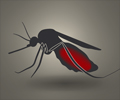The efficiency of pesticides was improved by adding small amounts of liquid soap, that tackles malaria-spreading mosquitos resistant to current pesticides.

Vegetable oil-based surfactants are adjuvants that enhance the efficacy of neonicotinoid insecticides and can bias susceptibility testing in adult mosquitoes
Go to source).
Pesticides with Soap Battle Malaria-Carrying Mosquitos
“Over the past two decades, mosquitoes have become strongly resistant to most insecticides,” Kamdem said. “It’s a race now to develop alternative compounds with new modes of action.”‘Adding soap to pesticides could be the simple solution to the long-running fight against malaria. #malaria #mosquitos #resistance #pesticides #soap #publichealth’





Both laboratory tests and field trials have shown that neonicotinoids, a special class of insecticide, are a promising alternative to target populations showing resistance to existing insecticides, said Caroline Fouet, Research Assistant Professor at UTEP.Neonicotinoids, however, do not kill some mosquito species unless their potency is boosted. In this case, Fouet said, soap is the boosting substance. Malaria is a devastating mosquito-borne disease that is prevalent in sub-Saharan Africa, Asia, and Latin America, causing fever, fatigue, headaches, and chills; the disease can be fatal.
In 2020, there were an estimated 241 million cases of malaria worldwide, according to the Centers for Disease Control, resulting in 627,000 deaths. In a new study, the team selected three low-cost, linseed-oil based soaps that are prevalent in sub-Saharan Africa -- Maitre Savon de Marseille, Carolin Savon Noir, and La Perdrix Savon -- and added them to four different neonicotinoids, acetamiprid, clothianidin, imidacloprid, and thiamethoxam.
In all cases, the insecticides drastically enhanced potency, the team wrote in the study .“All three brands of soap increase mortality from 30 percent to 100 percent compared to when the insecticides were used on their own,” said Ashu Fred, first author and doctoral student at Cameroon’s University of Yaounde.
The team also tested the addition of soap to a class of insecticides known as pyrethroids. In those cases, however, they saw no benefits. The team hopes to conduct additional testing to establish exactly how much soap is needed to enhance insecticides.
Advertisement
Reference:
- Vegetable oil-based surfactants are adjuvants that enhance the efficacy of neonicotinoid insecticides and can bias susceptibility testing in adult mosquitoes - (https://journals.plos.org/plosntds/article?id=10.1371/journal.pntd.0011737)









